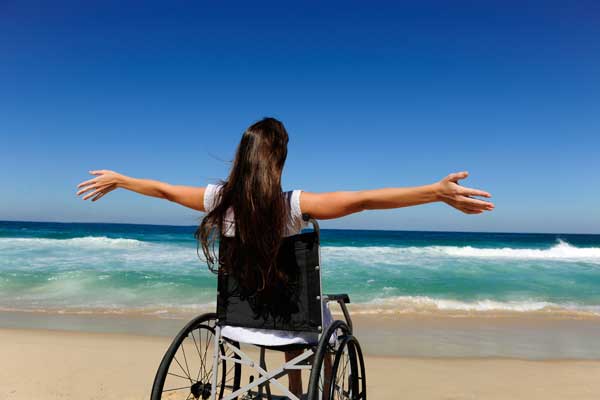The power of acceptance
June 7, 2015, Sunday Peter Tan, mail@petertan.com
THE most difficult part about my paralysis is not about losing the ability to walk or no longer being able to do the things I have always taken for granted. True, not being able to perform tasks by myself was a great inconvenience but there was always someone around to help me with it. My parents, kin and friends were more than willing to walk the extra mile at my behest.
Rather, what took me the longest time to recover from was the apparent loss of self-esteem and self-confidence. I was constantly mired in an emotional quagmire of feeling inadequate and unworthy. I was no longer good enough as a son, a brother, a boyfriend, and generally less of a human because of my physical conditions.
There is this thing about expecting everyone to be ‘normal’ in society. It perpetuates that invisible line that divides us into the ‘can-dos’ and ‘cannot-dos’. Everyone is compelled to conform to a certain standard. The ‘can-dos’ are the majority. Disabled people are lumped into the other group.
In the early years after my accident, not a day passed by without someone encouraging me to exercise hard, cultivate a positive attitude and work towards walking because if I continued to be one of the ‘cannot-dos’, I would be condemned into a life of uselessness.
Some things in life we cannot change no matter how hard we try. We have to live with the consequences of the bad decisions we made or calamity that befell us. In my case, the devastating effects of spinal cord injury can neither be reversed nor exercised away by sheer determination. It does not work that way. My impairments are more or less permanent.
But I did not know better then. When I could not conform to the norms, I felt defeated. For a time, wallowing in self-pity was all I did. There was a period where nothing mattered at all. It did not help that some people deemed the decline in my spirits as a sign of weakness and criticised me for the lack of resolve.
In conversations with friends with similar impairments, I learnt that we all went through similar experiences. We agreed that people may mean well but their judgemental attitudes and persistence in egging us on without understanding the underlying realities was damaging to us psychologically, especially in pushing us to build a hope we could never bring to fruition.
Perhaps many may not realise the long-term effects such acts may have on us. The truth is that as people with impairments, we are scarred by the standards of normality imposed upon us. Many years after we have accepted the fact that our conditions are permanent, we were still plagued with the lingering sense of being failures because we cannot walk.
It also does not help that our acceptance does nothing to keep ‘well-meaning’ people at bay. More than two decades later, I still have friends and strangers telling me how my life could be so much better if I could walk and that they know someone who could miraculously cure me. I told them thank you but no thank you politely. I have gone beyond that stage of looking for cures.
For me, acceptance is a long lonely journey of realisation no one can help me with, not even people with the same condition as mine. I use ‘is’ because mine has not ended yet. It did not happen overnight and does not end after that. Acceptance is not a clear-cut goal but a process.
People can do things for me but if I do not have that desire to move forward, no one can help me. My physical condition is already a given. That I can no longer change. However, my attitude and way of thinking can. That I did change.
I gradually regained my self-esteem and self-confidence because my acceptance of the permanence of my paralysis changed my outlook of life. I no longer waited for that day I could walk again. I was finally released to do other things.
Until today, I am still learning to accept and embrace the things that come my way that I have to do differently from other people. The most crucial point in this process is that I took that first step which opened my mind to the possibilities I can accomplish even though I am on a wheelchair or severely paralysed.
I realised that acceptance is not giving up. It is acknowledging the reality of the situation to enable me to move on. I am still open to avenues that can improve my life further, be they treatments, assistive devices, support services and improvement to the infrastructure.
A person’s deficit should not be seen as a stumbling block. Likewise, becoming ‘normal’ like everyone else should not be the be-all and end-all. Life can still be fulfilling in other ways regardless of whether one has impairments or not.
My advice is be realistic when dealing with disabled people. Accept us kinks and all, instead of trying to change us to fit into preconceived moulds of how everyone should be. It is good to give hope and encouragement. God knows we all need it one time or another.
Having hope is good but hope can be bad too especially when it is false. Let’s avoid that pitfall. It can go a long way towards helping us accept what we cannot change and change what we can.
Read more: http://www.theborneopost.com/2015/06/07/the-power-of-acceptance/#ixzz3hq5GYBLd

